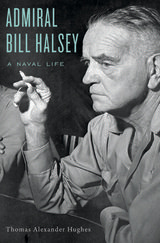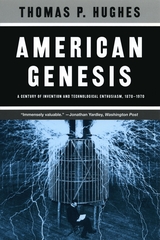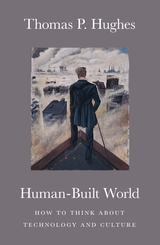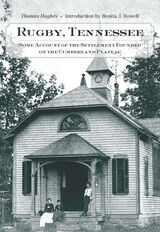
William Halsey was the most famous naval officer of World War II. His fearlessness in carrier raids against Japan, his steely resolve at Guadalcanal, and his impulsive blunder at the Battle of Leyte Gulf made him the “Patton of the Pacific” and solidified his reputation as a decisive, aggressive fighter prone to impetuous errors of judgment in the heat of battle. In this definitive biography, Thomas Hughes punctures the popular caricature of the “fighting admiral” to reveal the truth of Halsey’s personal and professional life as it was lived in times of war and peace.
Halsey, the son of a Navy officer whose alcoholism scuttled a promising career, committed himself wholeheartedly to naval life at an early age. An audacious and inspiring commander to his men, he met the operational challenges of the battle at sea against Japan with dramatically effective carrier strikes early in the war. Yet his greatest contribution to the Allied victory was as commander of the combined sea, air, and land forces in the South Pacific during the long slog up the Solomon Islands chain, one of the war’s most daunting battlegrounds. Halsey turned a bruising slugfest with the Japanese navy into a rout. Skillfully mediating the constant strategy disputes between the Army and the Navy—as well as the clashes of ego between General Douglas MacArthur and Admiral Chester Nimitz—Halsey was the linchpin of America’s Pacific war effort when its outcome was far from certain.


Hughes draws on an enormous range of literature, art, and architecture to explore what technology has brought to society and culture, and to explain how we might begin to develop an "ecotechnology" that works with, not against, ecological systems. From the "Creator" model of development of the sixteenth century to the "big science" of the 1940s and 1950s to the architecture of Frank Gehry, Hughes nimbly charts the myriad ways that technology has been woven into the social and cultural fabric of different eras and the promises and problems it has offered. Thomas Jefferson, for instance, optimistically hoped that technology could be combined with nature to create an Edenic environment; Lewis Mumford, two centuries later, warned of the increasing mechanization of American life.
Such divergent views, Hughes shows, have existed side by side, demonstrating the fundamental idea that "in its variety, technology is full of contradictions, laden with human folly, saved by occasional benign deeds, and rich with unintended consequences." In Human-Built World, he offers the highly engaging history of these contradictions, follies, and consequences, a history that resurrects technology, rightfully, as more than gadgetry; it is in fact no less than an embodiment of human values.

Hughes and many other "old boys" carried these values into their post-school lives in Victorian England. Thomas Hughes became an advocate for Britain's first labor unions and workingmen's colleges. He went on to serve in Parliament, and eventually planted his Christian Socialist ideals in the backwoods of Tennessee, where he established the utopian community named Rugby after his beloved alma mater.
In Rugby, Tennessee, Hughes describes the then-new community and his motivations in founding it. As Benita J. Howell points out in her lucid and informative new introduction, the book represents an important moment in late-Victorian English thought.
Hughes recounts the plight of England's "Will Wimbles," the underemployed second sons of the gentry, to whom he hoped to give a fresh start in Tennessee. Hughes also offers readers a vivid description of Tennessee's northern Cumberland Plateau, including natural landmarks that can still be seen. And his impressions of "Life in Tennessee," "The Natives," and "The Negro Natives" reveal much about the Upland South on the eve of industrialization. Written in part to convince British investors that their project in America was making great progress, Rugby, Tennessee, depicts a unique Utopian moment in this remote area of Appalachian Tennessee-a moment whose legacy is justly celebrated to this day.
Benita J. Howell is Professor of Anthropology Emerita at the University of
Tennessee. She is the author of Folklife along the Big South Fork of the
Cumberland River and is editor of Culture, Environment, and Conservation in the Appalachian South.
READERS
Browse our collection.
PUBLISHERS
See BiblioVault's publisher services.
STUDENT SERVICES
Files for college accessibility offices.
UChicago Accessibility Resources
home | accessibility | search | about | contact us
BiblioVault ® 2001 - 2024
The University of Chicago Press









